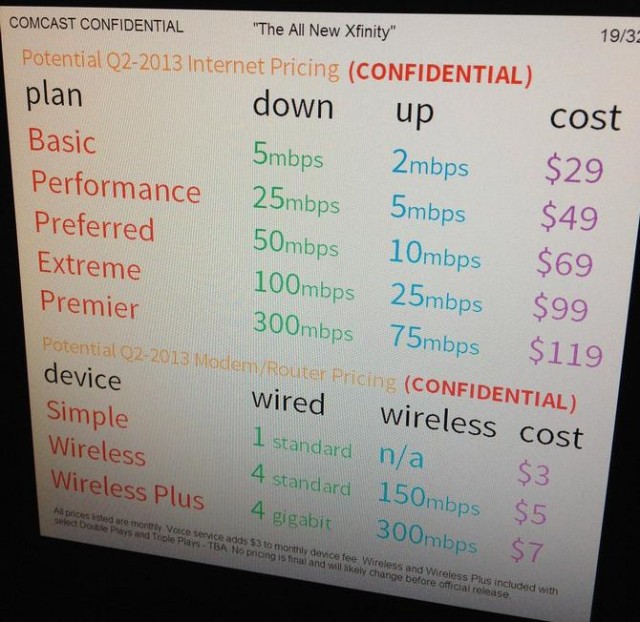
Windstream is reportedly behind the latest effort to ban community broadband networks in Georgia.
Rural communities across Georgia are upset about a new piece of legislation ghost-written by Windstream Communications that would keep broadband a strictly private affair in the Peach State.
House Bill 282, introduced by Rep. Mark Hamilton (R-Cumming) would prohibit publicly owned broadband networks from being built anywhere an incumbent provider delivers at least 1.5Mbps “broadband” in the state.
Sources familiar with the legislation say Windstream, a phone company primarily serving smaller communities, is the primary force behind the bill now before a legislative committee. When news of the bill came to light earlier this week, consumers and local communities began to push back with state legislators. A planned hearing on the bill has been temporarily pushed back until next week.
The legislation would effectively tie the hands of municipalities that have waited more than a decade for AT&T, Windstream, CenturyLink and other phone companies to bring DSL broadband to rural Georgia.
While not proposing a total ban on public broadband, the bill’s requirement that service be denied to a customer in a “census block” where at least one home can receive slow speed DSL makes building such networks nearly impossible.
 The Georgia Municipal Association notes local governments in small towns and cities, already strapped for resources, would have to prove to the Georgia Public Service Commission that each census block a community wants to serve has no existing broadband service (census blocks are the smallest geographic area the Census Bureau uses for data collection.)
The Georgia Municipal Association notes local governments in small towns and cities, already strapped for resources, would have to prove to the Georgia Public Service Commission that each census block a community wants to serve has no existing broadband service (census blocks are the smallest geographic area the Census Bureau uses for data collection.)
There are 291,086 census blocks in Georgia, making such a review difficult at best.
For communities that have already built public broadband networks, the bill brings more bad news. Under its terms, existing networks would not be allowed to expand anywhere any other provider delivers even a modicum of “high speed” 1.5Mbps Internet access. With many community networks built out in stages to minimize initial financial outlays, H.B. 282 could ruin the economic cost recovery models under which existing networks were financed and built, potentially risking bondholders.
Rep. Hamilton does not seem to care about them or whether rural Georgia gets Internet access or not. He answers to a higher calling: Windstream’s lobbyists.
 The final report of Gov. Nathan Deal’s Competitive Initiative found rural Georgia at a disadvantage simply because many communities cannot get broadband service. Several regions in Georgia called on Deal’s office to help improve inadequate broadband infrastructure.
The final report of Gov. Nathan Deal’s Competitive Initiative found rural Georgia at a disadvantage simply because many communities cannot get broadband service. Several regions in Georgia called on Deal’s office to help improve inadequate broadband infrastructure.
Instead, Hamilton’s bill would turn over Georgia’s broadband needs to phone company “Return on Investment” formulas that guarantee large sections of rural Georgia will remain unserved, with other areas left underserved. The bill itself defines suitable broadband at just 1.5Mbps, deemed inadequate by the Federal Communications Commission for today’s broadband user.
The bill’s defenders told The Telegraph the bill was designed to “close off an opportunity for government waste.” The bill also closes off an opportunity for better broadband and competition in Georgia.
“The fundamental question is rather simple: does Georgia want local leaders to determine the economic and investment strategies for their communities or do we want those decisions to be made solely on the business plans of companies based outside of the state,” asked the Georgia Municipal Association.
Georgia residents can contact the House Energy, Utilities & Telecommunications Subcommittee members and tell them to reject H.B. 282. Local municipalities seeking further information about this legislation should contact the Institute for Local Self-Reliance for additional information and guidance.




 Subscribe
Subscribe
 The Georgia Municipal Association notes local governments in small towns and cities, already strapped for resources, would have to prove to the Georgia Public Service Commission that each census block a community wants to serve has no existing broadband service (census blocks are the smallest geographic area the Census Bureau uses for data collection.)
The Georgia Municipal Association notes local governments in small towns and cities, already strapped for resources, would have to prove to the Georgia Public Service Commission that each census block a community wants to serve has no existing broadband service (census blocks are the smallest geographic area the Census Bureau uses for data collection.) The final report of Gov. Nathan Deal’s Competitive Initiative found rural Georgia at a disadvantage simply because many communities cannot get broadband service. Several regions in Georgia called on Deal’s office to help improve inadequate broadband infrastructure.
The final report of Gov. Nathan Deal’s Competitive Initiative found rural Georgia at a disadvantage simply because many communities cannot get broadband service. Several regions in Georgia called on Deal’s office to help improve inadequate broadband infrastructure. A handful of broadcasters in California, Michigan, Montana and New Mexico interrupted their regularly scheduled programs earlier this week to warn audiences that zombie attacks were underway and residents should avoid the undead at all costs.
A handful of broadcasters in California, Michigan, Montana and New Mexico interrupted their regularly scheduled programs earlier this week to warn audiences that zombie attacks were underway and residents should avoid the undead at all costs.
 Time Warner Cable customers in the Carolinas will soon pay $90.49 a month for digital cable television, including one set-top cable box. Customers who buy broadband, television, and phone service will see their monthly bill rise to $167.89.
Time Warner Cable customers in the Carolinas will soon pay $90.49 a month for digital cable television, including one set-top cable box. Customers who buy broadband, television, and phone service will see their monthly bill rise to $167.89. Broadcast cable: From $16.19 to $17.99
Broadcast cable: From $16.19 to $17.99